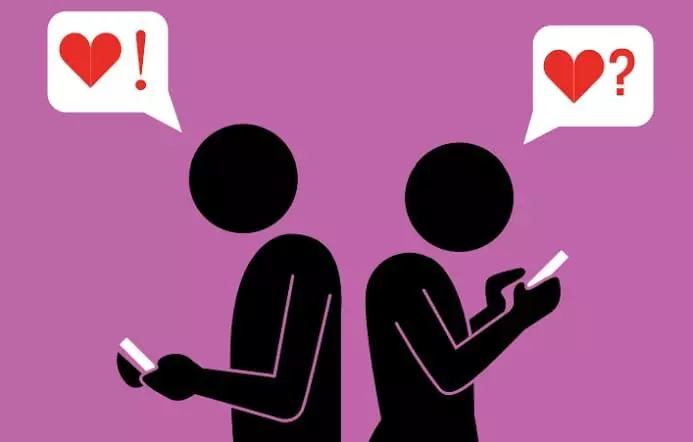Tinder survey: 65% young Hyderabadis do not know how to navigate consent when dating
According to the data insights, 6 in 10 young adults in Hyderabad believe that consent should be discussed more openly with partners.
By Amrutha Kosuru
Hyderabad: More than 65% of young adults in Hyderabad don't know how to give, ask or withdraw consent when dating someone. A recent survey by Tinder reveals that most young adults in India have little or no confidence in navigating consent and find it hard to have conversations on the subject. Amongst those surveyed in Hyderabad, more than 65% of Young adults are hesitant to give consent, ask for it, and to withdraw consent when dating someone.
Tinder is an online dating app or an app for meeting new people. Available in 190 countries and 40+ languages, it's been downloaded more than 530 million times and led to more than 75 billion matches. When asked about situations when their consent was violated, 65% of young Hyderabadis chose not to speak to their date/partner about it and turned to a friend and looked for resources online, illustrating the need for continuous dialogue on this subject. In fact, 66% of these young Hyderabadis believe that consent should be discussed more openly with partners.
According to the data insights, 6 in 10 young adults in Hyderabad believe that consent should be discussed more openly with partners, 64% have taken steps to personally understand the concept of consent and 60% want it to be even taught formally in schools and colleges. This research was conducted by YouGov - a survey of 1,018 Indian young adults (18-30) across Delhi, Bombay, Bengaluru, Pune, Kolkata, Chennai, and Hyderabad.
Developing safe spaces for topics on consent
Four in 10 young adults in Hyderabad seek more resources and safe spaces (both physical and online) on consent to be more educated and aware in their personal settings. Amongst a broad group of stakeholders potentially responsible for normalizing conversations on consent, young people identified themselves (50%), parents (46%), and schools and colleges (43%) as the top three influencers responsible for that conversation
Becoming confident in navigating consent - both IRL and URL
Across various aspects of consent education, young Hyderabadis are most interested in learning about how to give consent (46%) and how to navigate consent while meeting someone online (46%), followed by understanding their boundaries and limitations (33%), emphasizing the need for consent education in the city.
"I think young adults in Hyderabad today know what they like and what would put them off. I believe one doesn't want to come across as too uptight or serious. I cannot remember a single romantic classic where the protagonists explicitly asked if they could kiss or even hold hands for that matter. If it wasn't for my friends and the community groups I am part of, I wouldn't have understood that I can talk about consent without fearing it will kill the mood!" says Sneham, Tinder Member from Hyderabad,
Consent takes a backseat to avoid hurt, conflict, or awkwardness
Myriad factors prevent young adults from communicating consent or the lack thereof to their dates or partners. According to the survey, the most frequent reasons include feeling awkward having such conversations (42%), afraid of hurting the date/partner's feelings (37%), anxious about not being liked (29%), and not knowing how to say no (27%).
Recognize red flags but struggle to draw boundaries
As per the survey, young adults in Hyderabad also have a clear categorization of widely understood metaphors for warning signs. The top three red flags voted by young adults in Hyderabad were refusing to converse further when they share something emotional with their date, asking for intimate pictures, and making fun of their interests/beliefs.
Furthermore, young adults in Hyderabad believe that consent extends beyond intimacy and includes a larger concern for privacy and emotional boundaries. 7 in 10 Hyderabadis identified sharing someone's photos or conversational screenshots or looking at someone's phone or laptop without asking first as violations of privacy in the absence of explicit consent.